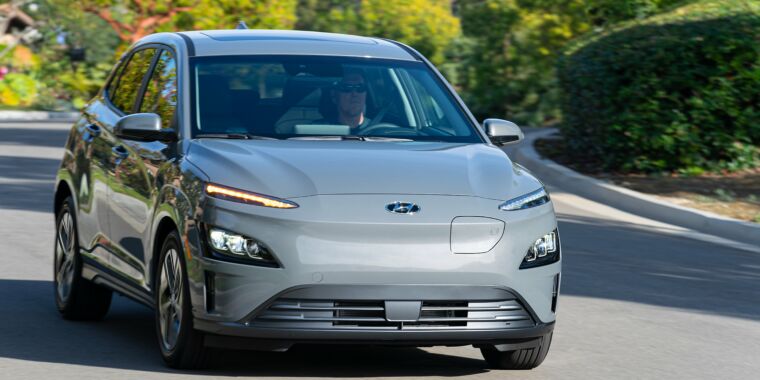
Hyundai
Reuters reported on Wednesday that Hyundai will recall its Kona EV due to problems with the battery. In total, about 82,000 Kona EVs worldwide will have to be recalled after 15 fires – 11 in South Korea, two in Canada, one in Finland and one in Austria – to have replacement batteries installed. Until the recall is done, the carmaker advises owners not to charge their Kona EVs more than 90 percent.
In October 2020, the OEM issued the first recall for the Kona EV, affecting more than 37,000 vehicles in South Korea and more than 11,000 in North America and Europe. The cause was the risk of a short circuit in the battery, which could possibly cause a fire. South Korea’s Ministry of Transport suggested at the time that a manufacturing defect could be the cause, something that cell manufacturer LG Chem denied.
These cars have released new software, but in January this year a recalled and upgraded Kona EV caught fire.
Hyundai will issue a new recall for just under 76,000 Kona EVs built between 2018 and 2020, as well as some Ioniq EVs. This solution is more intrusive and includes a whole new battery pack for every car. As a result, the recall is going to be expensive, estimated at $ 900 million (1 trillion won).
According to Reuters, LG Chem said in a statement that “Hyundai has misapplied LG’s proposals for fast charge logic in the battery management system, and that the addition of the battery cell should not be seen as the direct cause of the fire risks.”
Hyundai chose not to comment, but the South Korean Ministry of Transportation told Reuters that defects were found in some cells manufactured at LG Energy’s factory in China.
In November 2020, after five fires, Chevrolet started a recall for some Bolt EVs. The Bolts in question also use LG Chem cells, although they are from a South Korean factory.
